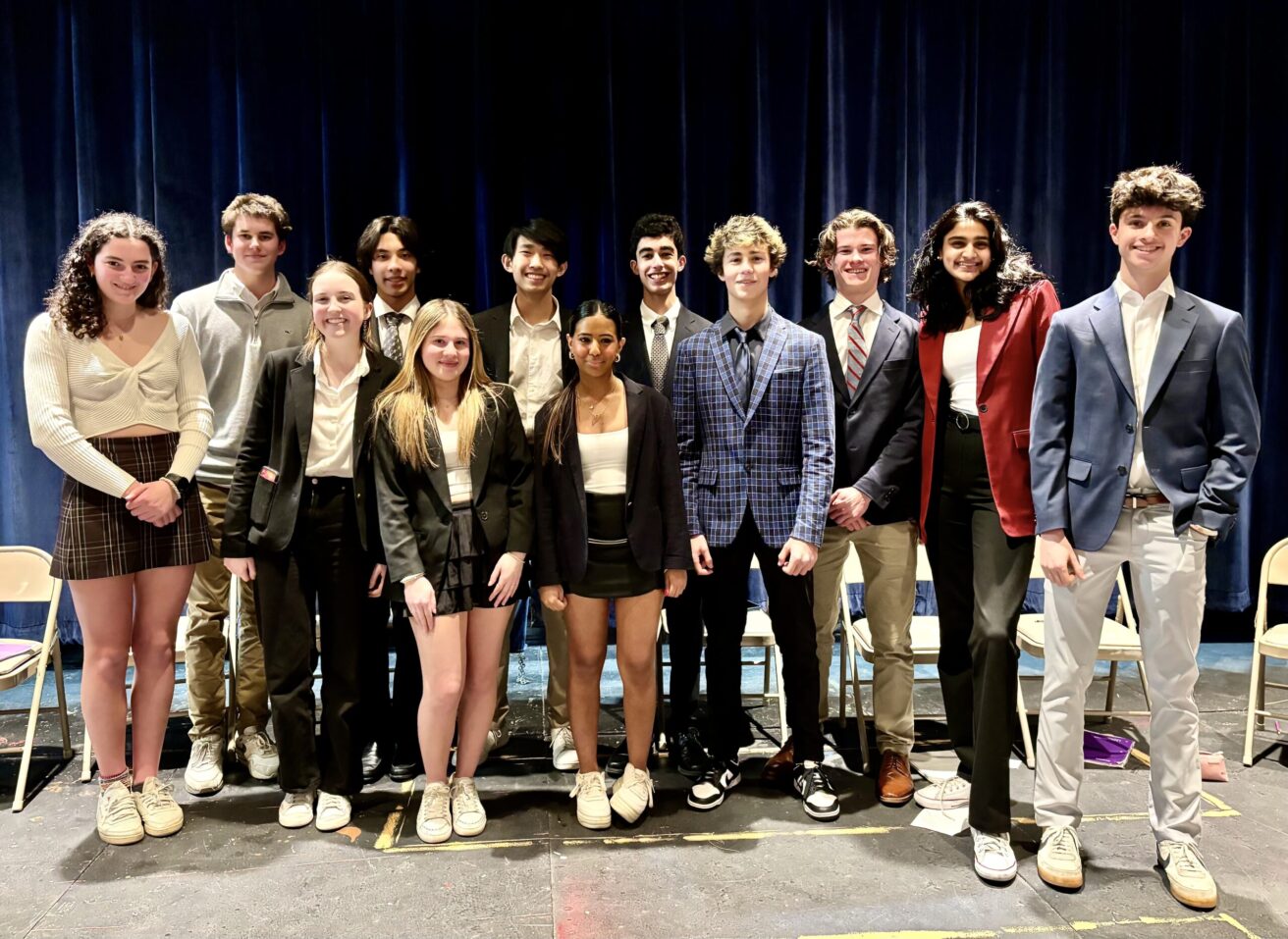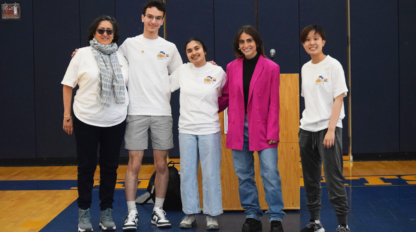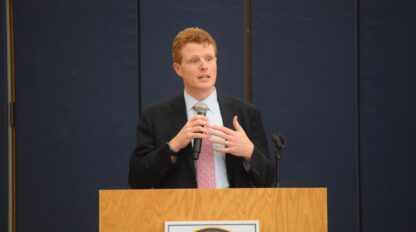All-Stars Debate Facial Recognition Technology

Concerns about a technology that perpetuates racial bias and about the safety of individuals and communities alike fueled the arguments of 12 talented sophomores who squared off in the Upper School Theater for the annual All-Star Debate. In the crosshairs for the affirmative and negative sides was law enforcement’s use of facial recognition technology in apprehending criminals.
If current practice were decided by the outcome of this split-decision contest, then law enforcement would no longer be permitted to use that technology in its work.
Leading up to this culminating event, students in each English 10 section voted for their best-in-class after a week of inter-class debates on other topics. “I found this experience to be useful in learning to collaborate with people that I do not see that often,” said all-star Ella Botein ’26. “This debate taught me how to lean on others for helpful feedback and in turn help my teammates. Also, I had never spoken in front of such a large group, so I found it to be useful in developing my public speaking skills.”
Speaking before the entire Class of 2026, teachers, and a panel of judges, the all-stars presented well-researched, trenchant points about the technology’s proven profound inaccuracies in identifying people of color and its infringement on individual rights to privacy.
In the end, the team arguing for a change in the status quo prevailed, according to this year’s presiding panel of judges: Upper School director Jess Keimowitz, English teacher Allison Kornet, and junior Max Laibson, one of last year’s all-stars and the 2023 recipient of the Jacobs Prize, which will be awarded later this spring to the outstanding participant in the All-Star Debate.


